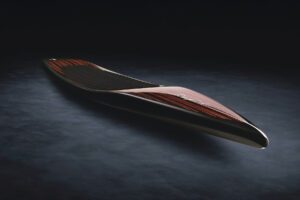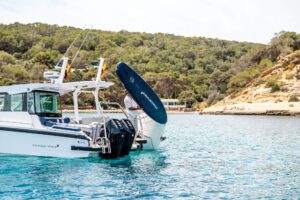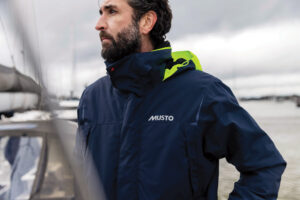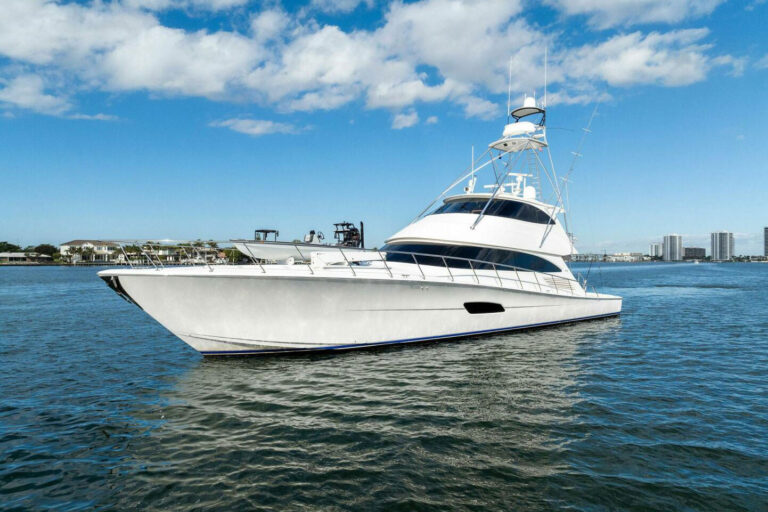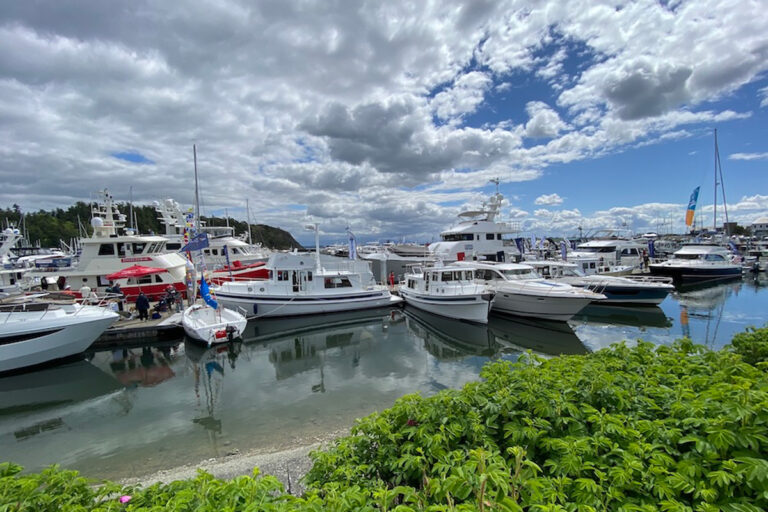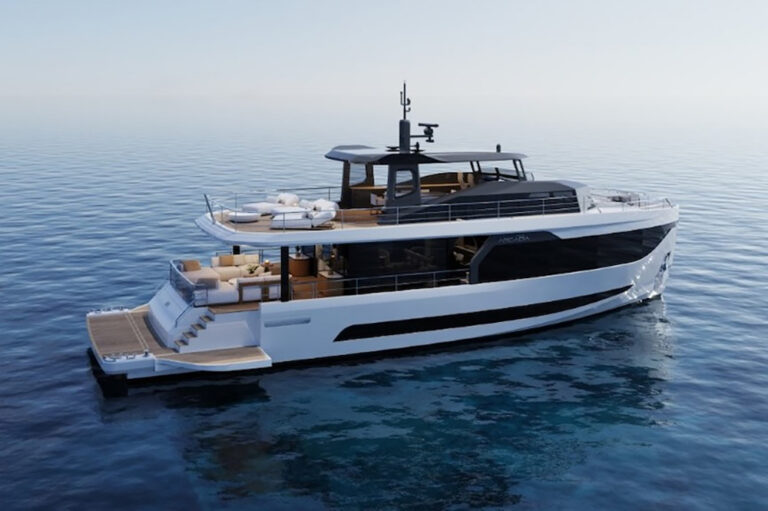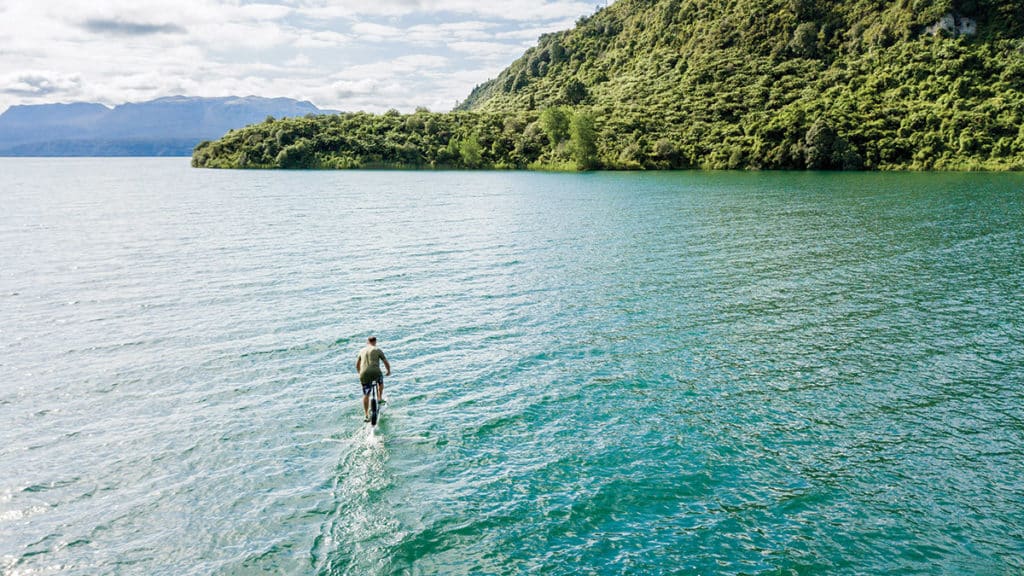
Guy Howard-Willis didn’t have a “lightbulb” moment. His experience was more like basking in the sunshine for so long that he couldn’t help but to see the world through different-colored sunglasses.
He’d been selling sports equipment online in New Zealand and Australia, immersing himself not only in the water toys that existed, but also in what consumers wanted. At the same time, he was a cycling junkie, riding everything from mountain bikes to racing bikes. For years, the two streams of thought were banging around, and into, each other in his mind.
“The idea has been floating around in my head for a while,” he says. “Having a bike to ride on water was pretty obvious, but I’ve always been fascinated by how foils work on boats, how they lift the boats out of the water.”
About a half-dozen years ago, he went to a conference where a motivational speaker challenged participants to make their ideas a reality. So, he finally did.
He enlisted a full-time designer, a fearless test rider and an engineer with simulation software to develop foiling-bike prototypes — seven, in all — ultimately creating the version that is in preorder now. Howard-Willis and his team were having molds built this summer, with the first units expected to ship in New Zealand by the end of this year. The first Manta5 Hydrofoiler XE-1 bikes bound for U.S. shores are due to arrive in early 2019, at a retail price of $6,895.
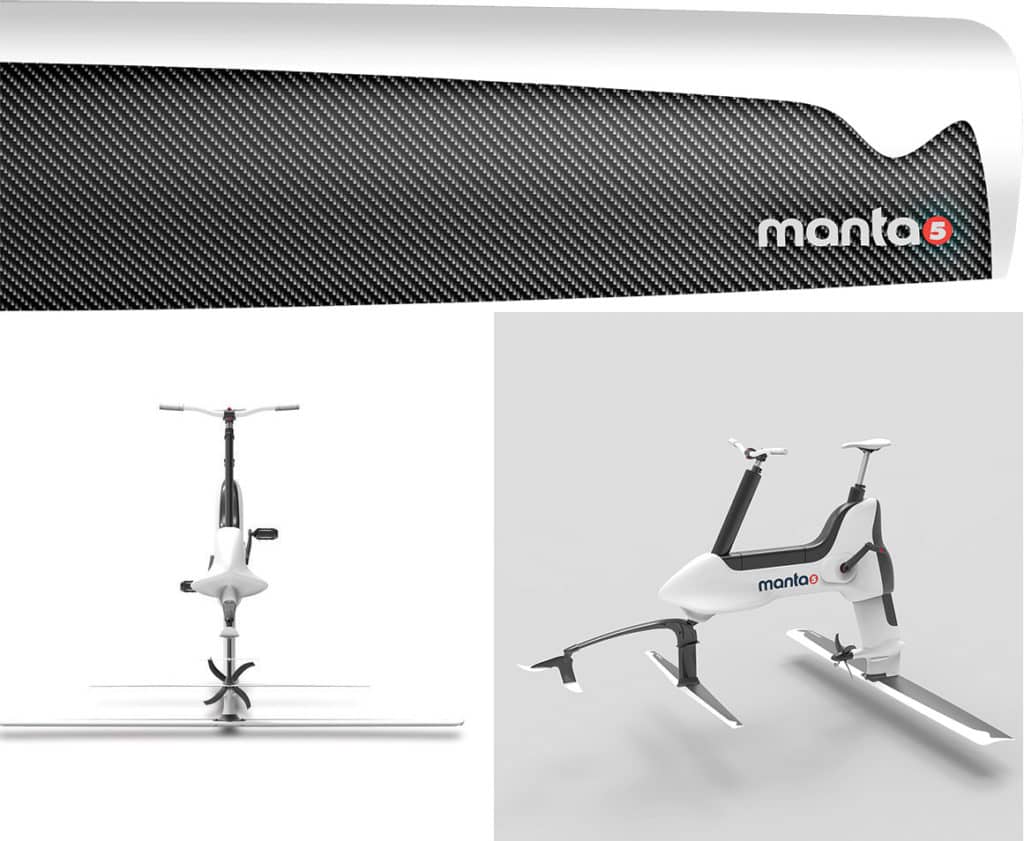
“We’ve had yacht owners call,” he says. “There’s a captain from Florida who looks after a few yachts. He said, ‘Send them down. Every yacht owner is going to want a few of these. It’s almost like an adventure cycling sport.’”
Some 30,000 people have registered for information on the company’s website, and Howard-Willis says 40 percent of them are Americans. He’s now thinking about ways to give them all what they want beyond the base model, be it a racing version or one that can surf down waves.
“If you look at that progression of how cycling has gotten faster with all kinds of bikes, I think our bike is really just the beginning of a whole new industry, a whole new sport,” he says. “That’s the exciting part for me. If it becomes competitive, it could end up in the Olympics.”

